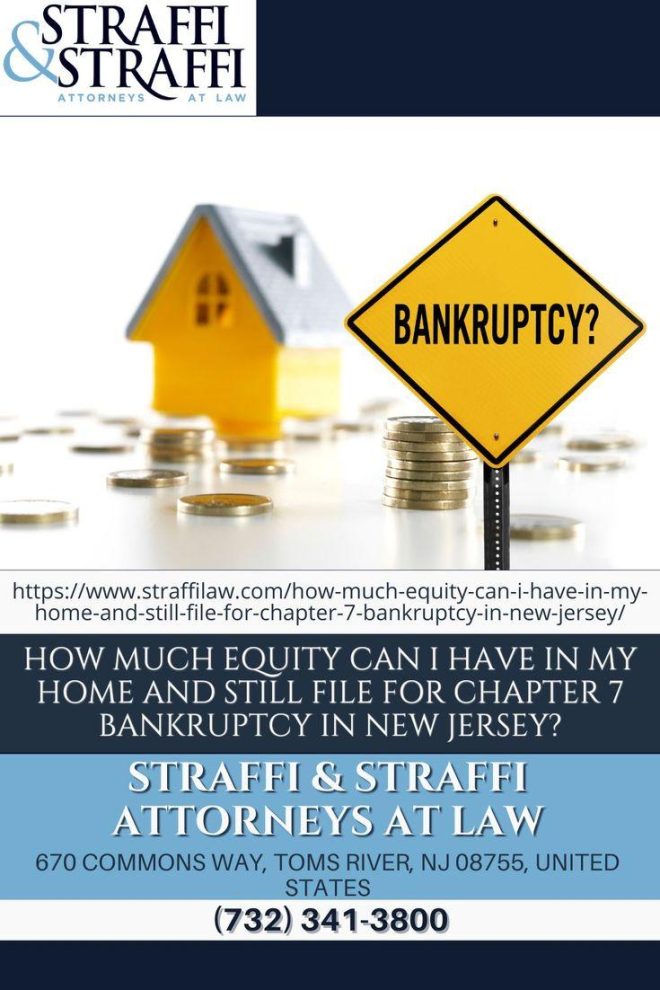
Navigating Chapter 13 Bankruptcy in New Jersey can feel like trying to solve a Rubik’s Cube blindfolded, with one hand tied behind your back, and a parrot squawking in your ear. But fear not, intrepid reader, for in this article we will unravel the mysteries of the bankruptcy process with the finesse of a ballerina tiptoeing through a minefield. So grab your popcorn, settle in, and prepare to be entertained and educated in equal measure as we navigate the wild world of Chapter 13 bankruptcy in the Garden State.
Understanding Chapter 13 Bankruptcy
So you’ve found yourself in a bit of financial trouble, huh? Don’t worry, we’ve all been there at some point or another. And if you’ve heard whispers about Chapter 13 bankruptcy, well, you’ve come to the right place for some answers. Let’s break it down, shall we?
First things first, Chapter 13 bankruptcy is basically like hitting the reset button on your finances. It’s a way to reorganize your debts and come up with a plan to pay them off over a period of time. Think of it as a financial do-over, but with a little legalese thrown in for good measure.
With Chapter 13, you get to keep your assets while working out a repayment plan with your creditors. It’s like negotiating with your wallet’s worst enemies, but in a more official capacity. And hey, who doesn’t love a good negotiation, am I right?
So if you’re feeling overwhelmed by debt and need a fresh start, Chapter 13 bankruptcy might just be the solution for you. It’s like hitting the financial restart button and getting a chance to make things right again. Plus, it’ll give you some peace of mind knowing that you have a plan in place to get back on track. Just remember, you’re not alone in this – we’ve all been there at some point. Hang in there, friend.
Eligibility Requirements for Filing Chapter 13 in New Jersey
So, you’re thinking about filing for Chapter 13 bankruptcy in New Jersey, huh? Well, before you go diving headfirst into the world of debt relief, you need to make sure you meet the eligibility requirements. Here’s the lowdown:
First off, you’ll need to have a regular income. This is crucial because Chapter 13 requires you to create a repayment plan to pay off your debts over a period of three to five years. Without a steady source of income, you might find yourself in hot water (and not the relaxing kind).
Next up, you can’t have too much debt. Seriously, if you owe more than $394,725 in unsecured debts or $1,184,200 in secured debts, you’re out of luck. Looks like those designer shoes and luxury vacations might have to wait.
And last but not least, you must attend credit counseling within 180 days before filing for Chapter 13. Think of it as a crash course in financial responsibility – without the crash part (hopefully).
The Role of a Bankruptcy Trustee in Chapter 13 Cases
When it comes to Chapter 13 bankruptcy cases, the role of a bankruptcy trustee is not to be taken lightly. These legal superheroes are like the Batman of the bankruptcy world, swooping in to save the day and make sure everything is running smoothly. So, what exactly does a bankruptcy trustee do? Let me break it down for you.
First of all, these trustees are like the referees of the bankruptcy process. They make sure everyone is playing by the rules and no one is trying to pull a fast one. They review your bankruptcy proposal, make sure all your financial information is accurate, and ensure that your creditors are being treated fairly. It’s like having a financial babysitter, but with more power and a better suit.
Another important role of a bankruptcy trustee is to act as a mediator between you and your creditors. They help facilitate communication and negotiate on your behalf to come up with a repayment plan that works for everyone involved. It’s like having your own personal financial diplomat, smoothing out any bumps in the road and making sure everyone is happy (or at least not completely furious).
Creating a Feasible Repayment Plan
So, you’ve found yourself knee-deep in debt and drowning in financial worries. Fear not, my friend! is not as daunting as it sounds. With a little bit of strategy and a touch of humor, you’ll be back on your feet in no time.
First things first, take a good hard look at your current financial situation. **Face the music**, gather all your bills, statements, and receipts, and lay them out in front of you. It may feel like confronting your worst enemy, but trust me, it’s the first step towards victory.
Next, assess your income and expenses. **Crunch those numbers** and figure out how much you can realistically afford to allocate towards debt repayment each month. It may require some sacrifices, like saying goodbye to daily Starbucks runs or bidding farewell to your beloved avocado toast. But hey, desperate times call for desperate measures, right?
Once you have a clear understanding of your finances, it’s time to get creative with your repayment plan. **Think outside the box**. Consider consolidating your debts, negotiating for lower interest rates, or even exploring side hustles to boost your income. The possibilities are endless, my friend. And remember, Rome wasn’t built in a day. Slow and steady wins the race, so stay positive and keep chipping away at that debt mountain. Before you know it, you’ll be debt-free and living your best life. Cheers to financial freedom!
Navigating the Confirmation Hearing Process
So you’ve been nominated for a confirmation hearing – congratulations! Now it’s time to navigate through the wild and wacky world of Senate scrutiny. Here are some tips to help you survive the process:
First off, make sure to do your homework and research the committee members who will be grilling you. Find out what makes them tick and tailor your answers accordingly. Remember, flattery will get you everywhere!
Next, practice your poker face because you’re going to get hit with some curveball questions. Whether it’s about your tax returns or that embarrassing tweet from 10 years ago, stay cool and collected. And hey, if all else fails, just blame it on a faulty memory!
Lastly, don’t forget to dress the part. You want to look sharp and sophisticated, so leave the Hawaiian shirt at home. Remember, the goal is to impress, not distract. And who knows, if you play your cards right, you might just breeze through the confirmation process with flying colors!
Handling Creditor Objections in Chapter 13 Bankruptcy
So, you’ve found yourself knee-deep in Chapter 13 bankruptcy and creditors are starting to object left and right. Don’t worry, we’ve got some tips to help you handle those pesky objections like a pro!
First off, take a deep breath and remember to keep your cool. Responding to creditor objections is just a part of the bankruptcy process – nothing to lose sleep over. Stay calm, collected, and most importantly, keep that sense of humor handy. It’s going to be a bumpy ride, but you can handle it!
When dealing with creditor objections, make sure to address each one promptly and thoroughly. Don’t brush them off or procrastinate – creditors mean business and you should too! Take the time to understand each objection and gather any necessary documentation to support your case. Remember, knowledge is power!
Lastly, don’t be afraid to seek help if you need it. You’re not in this alone, and there are professionals out there who can guide you through the process. Whether it’s a bankruptcy attorney or a financial advisor, don’t hesitate to ask for assistance. It’s never a sign of weakness – in fact, it shows that you’re taking charge of your situation and doing what’s best for you. Stay strong and keep pushing forward, you’ve got this!
Modifying Your Chapter 13 Plan if Circumstances Change
So, you’ve found yourself in the midst of a Chapter 13 bankruptcy plan, but alas, life is full of surprises! Maybe you got a promotion at work, your expenses have increased, or you won the lottery (lucky you!). Whatever the reason, if your circumstances have changed, fear not! You have the power to modify your Chapter 13 plan to better suit your current situation.
Here are a few tips to help you navigate the process like a pro:
- Review Your Finances: Take a good look at your income, expenses, and debts. Are there any significant changes that need to be accounted for? Make sure to have all the necessary documents on hand to support your case.
- Contact Your Trustee: Don’t be shy! Reach out to your trustee to discuss your options. They can help guide you through the modification process and ensure everything is done correctly.
- Submit a Modification Request: Once you’ve gathered all the necessary information, it’s time to submit a formal request to modify your Chapter 13 plan. Be sure to provide a detailed explanation of why the modification is necessary and how it will benefit both you and your creditors.
Remember, life is full of twists and turns, but with a little bit of planning and a dash of determination, you can successfully modify your Chapter 13 plan to fit your current circumstances. So go forth, brave soul, and conquer those financial woes with confidence!
FAQs
What is Chapter 13 Bankruptcy and how does it work in New Jersey?
Chapter 13 Bankruptcy is like going on a financial diet - you make a plan to repay your debts over a period of 3-5 years. It’s like saying “I’ll have a slice of humble pie now so I can enjoy a rich dessert later.” In New Jersey, you work with a trustee to come up with a repayment plan that fits your income and debts.
Can I keep my house and car if I file for Chapter 13 Bankruptcy in New Jersey?
Absolutely! Chapter 13 Bankruptcy is like a protective shield for your assets. As long as you stick to your repayment plan, you can keep your house, car, and other valuable possessions. It’s like having your cake and eating it too – just with a side of responsible financial planning.
What debts can be included in a Chapter 13 Bankruptcy in New Jersey?
Think of Chapter 13 Bankruptcy as a catch-all solution for your debts. You can include everything from credit card bills to medical expenses to mortgage arrears. It’s like throwing all your financial problems into a magic cauldron and watching them disappear over time.
How long does a Chapter 13 Bankruptcy typically last in New Jersey?
In New Jersey, Chapter 13 Bankruptcy usually lasts anywhere from 3-5 years. It’s like planting a financial seed and watching it grow into a stable money tree. Just remember, patience is key – Rome wasn’t built in a day, and neither is your debt-free empire.
What are the benefits of filing for Chapter 13 Bankruptcy in New Jersey?
Chapter 13 Bankruptcy in New Jersey is like hitting the financial reset button. It can help you reorganize your debts, stop foreclosure proceedings, and create a manageable repayment plan. It’s like giving yourself a second chance at financial success – who doesn’t love a good comeback story?
Surviving Chapter 13 Bankruptcy in the Garden State
Congratulations on making it through this crash course on navigating Chapter 13 bankruptcy in New Jersey! Remember, bankruptcy may be a tough road to travel, but with the right guidance and mindset, you can come out stronger on the other side. So, don’t let those financial burdens weigh you down – push forward, stay positive, and before you know it, you’ll be back on the road to financial freedom! And who knows, you might even be able to laugh about it one day… maybe. Good luck!










